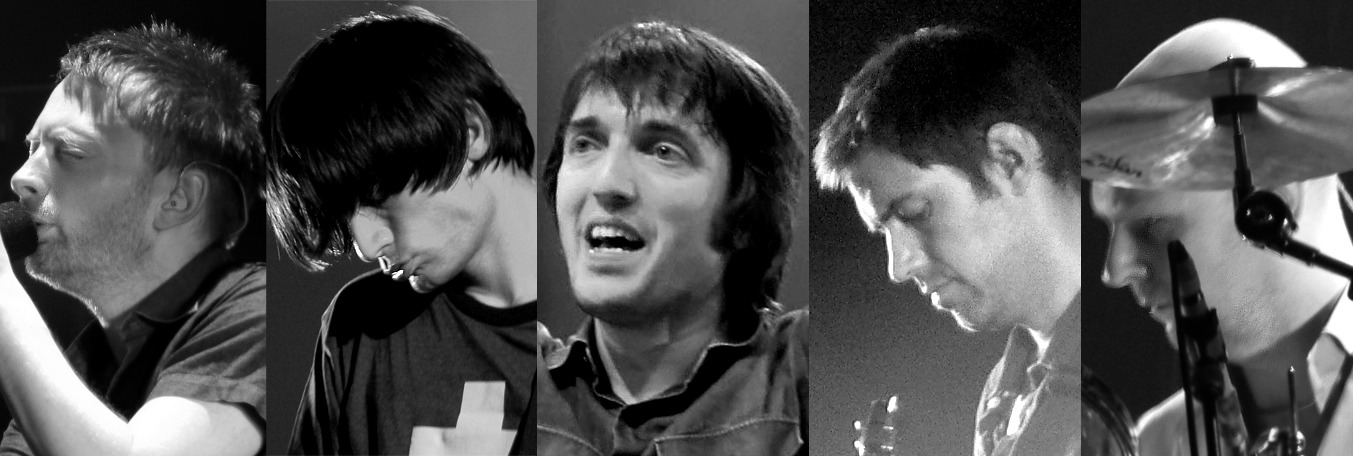Revolutionising alternative rock: Radiohead’s ‘The Bends’ thirty years on
The first time I heard Radiohead was at the age of fourteen, in the passenger seat of my mum’s car. I didn’t know the name of the album then, nor the gravity of the lyrics, but I loved the soaring vocals and the guitar riffs. Five years have passed since then, and thirty years have passed since the release of Radiohead’s second album, The Bends. What was once background music has since become something deeper, not only a personal inheritance but a portal into emotion and the quiet ache of growing up.
The Bends was released in 1995, two years after the release of their debut album, Pablo Honey, an album which included the well-known, ‘Creep’. The successes of ‘Creep’ catapulted Radiohead to fame, yet threatened to define the band as potential one-hit wonders. The title of The Bends taps into this threat, as a term for decompression sickness, a condition that occurs when divers ascend too quickly from deep dives. Likewise, ‘Creep’ forced the band to ascend too quickly to fame. One track on the album alludes to ‘Creep’ as the band’s ‘Iron Lung’ in that it kept the band breathing financially but was a burden which they felt constricted by. Whilst the song lent the band a platform, it restricted them to a particular style and a certain image.
The album exposes this emotional repression with a disturbingly quiet devastation, one which is hauntingly moving and powerful to listen to
With The Bends, Radiohead were able to escape this narrow definition, each song layered with spacey and experimental sounds which not only mirrored the complexity of human emotions, but the disorientation of the world which the album sought to explore. Tracks like ‘Black Star’ and my personal favourite Radiohead song, ‘Fake Plastic Trees’ channel this emotional turbulence. ‘Fake Plastic Trees’ begins tentatively with Thom Yorke’s fragile vocals and acoustic guitar strumming, before swelling into a voice of desperation, an aching climax. At first, I was drawn to its softness, but now I hear its sadness. It describes the superficial and derivative nature of relationships in the modern world, how inauthenticity has corroded society and worn people down. Not only this but the song taps into the male reluctance to talk about emotions, the man who ‘crumbles and burns’ yet is made of ‘polystyrene’, putting on a fragile façade. He is the boy who was told not to cry, the teenager who was told to man up, and the man who learns to push all his pain deep inside, until he finally cracks. The album exposes this emotional repression with a disturbingly quiet devastation, one which is hauntingly moving and powerful to listen to.
The vocals on ‘Black Star’ are bleaker and achier, describing someone who is in a relationship with someone who is mentally ill. He tries to understand her mental condition, the depression that consumes her, yet how mental illness itself becomes a scapegoat to justify an unhealthy relationship. The storytelling within this track is particularly powerful, as the protagonist ends the relationship, yet can’t stop thinking about it – an attachment that continues to kill him even after escaping its grasp. These songs represent a synecdoche of an album which seeks to give shape to emotions which people are forced to grapple with in a modernised yet cruel world. It is these difficult issues which give the songs such emotional gravity, they are what make The Bends so resonant.
In an album which mirrors the oppressive reality of the world, which recognises the futility of death, the flaws in its modernisation, we are reminded to immerse ourselves in love
Another of my personal favourites is the final track on the album, ‘Street Spirit (Fade Out)’, the same pattern of hypnotic guitar chords repeated throughout the song. The track reminds the listener of the reality of life and death yet takes them into a trance-like realm, as if escaping reality itself. But the final words of the track, thus of the album, hit the hardest. In an album which mirrors the oppressive reality of the world, which recognises the futility of death, the flaws in its modernisation, we are reminded to immerse ourselves in love. Where suffering permeates every facet of reality, love provides an escape.
The Bends revolutionised alternative rock, crossing hard rock styles with emotional disquiet. Thirty years after its release, The Bends remains more than just a record of its time. It is not only an emotional masterpiece which I could not recommend more highly, but by its construction, it is where Radiohead found their own voice.

Comments (2)
A fantastic short read and analysis of one of my favourite albums.
Could not agree more. Lovely to read. I’m sure you were in St. Bernard’s mini school though